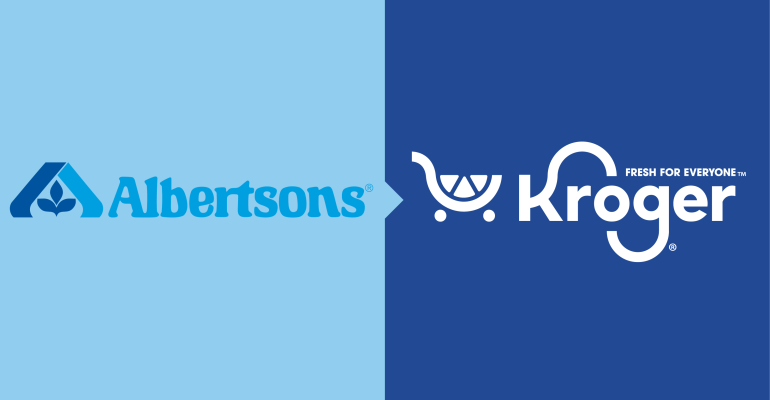With proposed guidelines for mergers by the Federal Trade Commission and the Department of Justice fresh off the press, the CEOs of Kroger and Albertsons are still confident about their $24.6 billion deal.
In an interview with the Denver Post, Kroger CEO Rodney McMullen and Albertsons CEO Vivek Sankaran both admit they have not reviewed the new guidelines, which prohibits the formation of monopolies. However, McMullen did say there is not anywhere in the merger where there are monopoly concerns.
The guidelines are the means by which the FTC and DOJ review mergers and acquisitions to determine compliance with federal antitrust laws. The written rules have been changed six times since they were first introduced in 1968 — with the most recent revision being in 2020.
Of the proposed new merger guidelines, the ones that could affect the potential Kroger, Albertsons merger concern anti-competition. (“Mergers should not significantly increase concentration in highly concentrated markets,” “Mergers should not otherwise substantially lessen competition or tend to create a monopoly”).
Critics of the Kroger, Albertsons merger have said the deal would send the grocery market into a tailspin. Immediately following the merger announcement, the National Grocers Association said they thought the merger deal could “raise serious questions about a single supermarket giant gaining unprecedented dominance over the nation’s food supply chain.”
Still, despite the potential pivot from the FTC and DOJ, both McMullen and Sankaran told the Denver Post that the merger is still on schedule, and expect the deal to be approved and finalized in early 2024.
The process of store divestiture remains cloudy. Many have said Kroger and Albertsons would have to divest anywhere from 100-375 stores, but the highest prediction now stands at over 700. McMullen told the Denver Post the grocers are currently talking to potential suitors who could buy the stores that will be divested. It is not clear if the divested stores will belong to Kroger, Albertsons, or a combination of both. However, both CEOs are ready to work with the FTC to come up with the best solution.
The Denver Post asked Jose Tamez, who is a managing partner at grocery retail and wholesale talent search firm Austin-Michael LP, on his take of the merger. Tamez believes it will be a battle to the end, but does point to Kroger’s history with acquisitions, which he says is outstanding.
Tamez added the two grocers are extremely committed in getting the merger approved, and said more resources have been injected into SpinCo, which could be formed once the merger becomes official.
Tamez predicts there will likely be an impasse with the merger before compromises are made and the deal becomes official.





